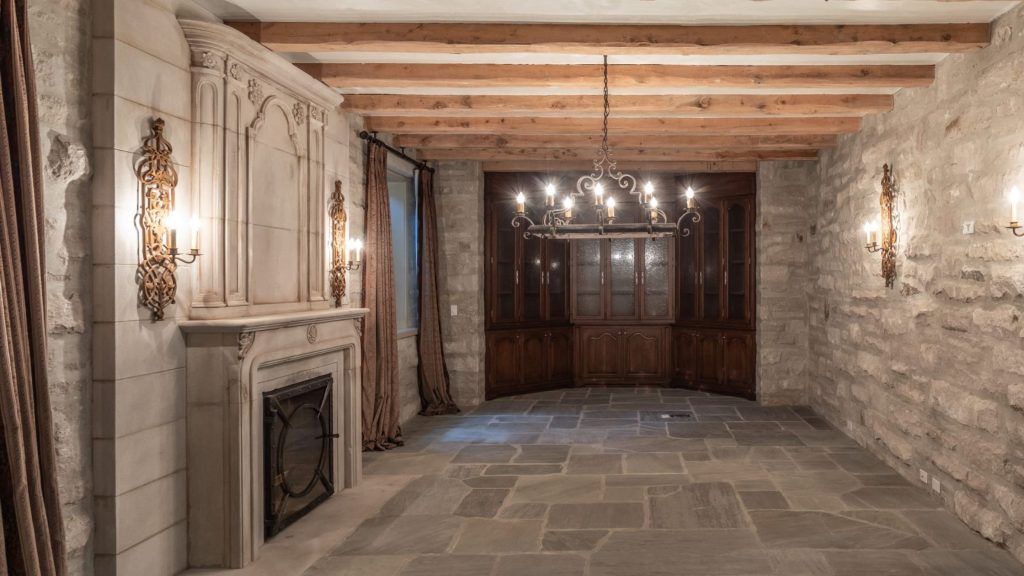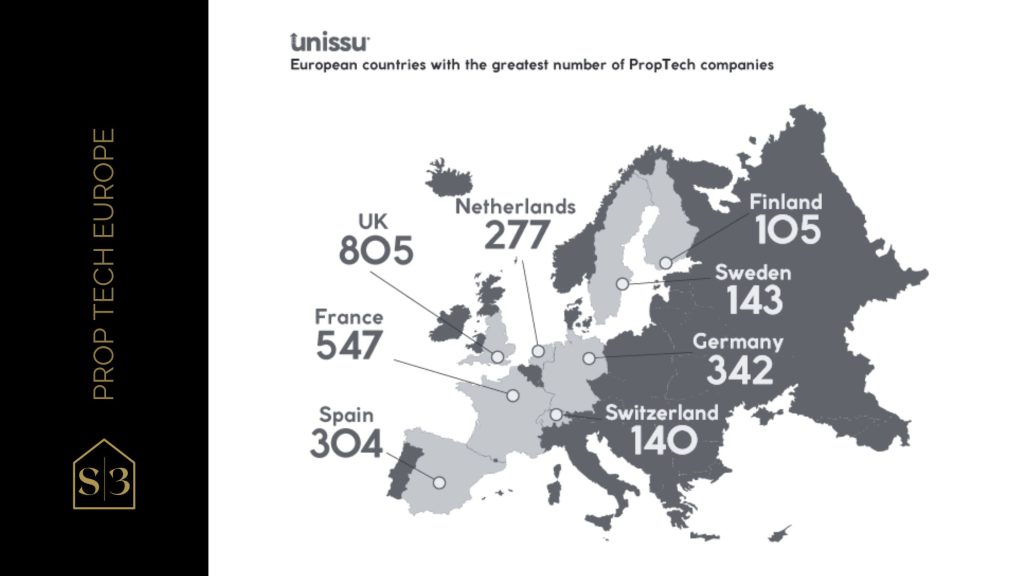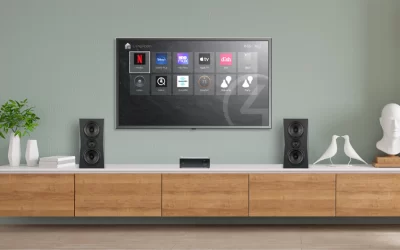As I bask in the warm Hungarian summer breeze near Lake Balaton, I’m captivated by the ever-evolving real estate industry. As experienced residential and commercial technology architects, we’ve witnessed firsthand the transformative fusion of property and technology – PropTech.
“PropTech”, or property technology, revolutionizes how we interact with spaces. It integrates cutting-edge technology, creating intelligent environments that blend innovation and design. PropTech trends have surged. Smart homes redefine comfort and convenience through automation and connectivity. Virtual and augmented reality transform property viewings. Blockchain enhances transaction transparency and security. AI and data analytics revolutionize property management.
In this dynamic universe, technology architects play a pivotal role. As experts in bespoke intelligent solutions, we merge architecture and technology seamlessly. By collaborating with developers, architects, and clients, we ensure future-proof investments. Working with a technology architect maximizes ROI, avoids costly retrofits, and harnesses emerging trends.
In the following sections, we’ll delve into the latest PropTech trends, exploring the transformative power of technology in real estate. We’ll also highlight the crucial role of technology architects and the reasons to collaborate with these experts for future-proofing your investments.

S3 successfully integrated Control4 technology, breathing life into this traditional space. Our bespoke intelligent solutions ensure optimal comfort, energy efficiency, and enhanced security, all effortlessly controlled at the touch of a button.
Understanding PropTech
PropTech, an abbreviation for property technology, encompasses the utilization of technology to revolutionize various aspects of real estate. It represents a dynamic intersection where innovation and property converge, introducing transformative changes that enhance the way we interact with and manage properties.
The evolution of PropTech has been driven by the rapid advancements in technology and the growing demand for smarter, more efficient living and working spaces. It transcends traditional real estate practices by integrating cutting-edge solutions, such as Internet of Things (IoT) devices, artificial intelligence, big data analytics, virtual and augmented reality, and blockchain technology. These technologies seamlessly blend into the fabric of properties, delivering enhanced functionalities, energy efficiency, security, and personalized experiences.
The benefits of integrating technology into real estate operations are far-reaching. PropTech has the power to optimize energy consumption, reducing environmental impact and lowering utility costs. It enhances security through smart surveillance systems, access control, and remote monitoring. Automation simplifies routine tasks, freeing up time for more valuable activities. Moreover, it empowers property owners and managers with data-driven insights, enabling them to make informed decisions, streamline operations, and provide tailored services to occupants.
To embrace the full potential of PropTech, collaboration with experienced professionals, such as home technology architects, is crucial. These architects possess in-depth knowledge of the latest technologies, industry trends, and best practices. They work closely with developers, architects, and clients to design and implement bespoke intelligent solutions tailored to specific needs. By incorporating scalable and adaptable technologies, they future-proof investments, ensuring that properties remain cutting-edge and well-prepared for the advancements that lie ahead.
Transitioning seamlessly between the realms of technology and architecture, technology architects play a vital role in maximizing the benefits of PropTech. Their expertise in integrating various systems and devices into the fabric of properties ensures a harmonious and efficient technological ecosystem. By collaborating with these specialists, real estate professionals and property owners can unlock the full potential of PropTech, capitalizing on its transformative power to create intelligent, sustainable, and future-ready spaces.

There are roughly 3,219 (as of Aug 2022) PropTech companies to be found throughout Europe. Of all nations, there are eight most deserving of mention for being home to at least 100 companies.
Latest Trends in Europe
These trends are propelling the industry forward, revolutionizing the way we live, invest, and interact with properties.
A. Smart Homes and Intelligent Living Spaces
Smart homes have become the epitome of modern living, where technology seamlessly integrates into our daily routines. These homes are equipped with smart devices and systems that offer enhanced living experiences. From automated lighting and climate control to intelligent security systems, smart homes provide comfort, convenience, and energy efficiency. Transitioning effortlessly between different modes, they adapt to our needs, creating personalized environments with a simple voice command or a tap on our smartphones.
B. Virtual and Augmented Reality in Real Estate
Virtual reality enables immersive property viewings, allowing prospective buyers to virtually walk through spaces and experience them as if they were physically present. Additionally, virtual staging has become a game-changer in property marketing, enabling the visualization of fully furnished spaces, which helps buyers envision the potential of an empty property. Augmented reality enhances real estate experiences by overlaying digital information onto physical spaces, providing interactive and informative property tours.
C. Blockchain and Real Estate Transactions
Blockchain technology, with its decentralized and transparent nature, has found its way into the real estate industry. In Europe, blockchain is revolutionizing property transactions by ensuring security, transparency, and efficiency. Through blockchain-based platforms, property ownership records can be securely stored, verified, and accessed by relevant parties. Smart contracts facilitate automatic and tamper-proof execution of agreements, streamlining the buying and selling process. Moreover, blockchain’s potential extends beyond traditional transactions, as tokenization and fractional ownership enable broader investment opportunities in the real estate market.
D. Artificial Intelligence and Data Analytics
Artificial intelligence (AI) and data analytics are driving advancements in the real estate sector. AI algorithms and machine learning models can analyze vast amounts of data, providing valuable insights for investment decisions. Predictive modelling helps identify market trends, property valuation patterns, and investment opportunities, enabling informed decision-making. AI-powered property management systems automate routine tasks, optimize energy usage, and enhance tenant experiences. With AI and data analytics, real estate professionals can leverage data-driven strategies to optimize operations, improve profitability, and deliver exceptional service.
Transitioning seamlessly between these emerging trends, technology architects are at the forefront of PropTech innovation. By integrating these advancements into the design and construction process, they ensure that properties are equipped with the latest technologies, enabling seamless connectivity and adaptability.

Experience the perfect harmony of past and future as technology architects elevate the potential of PropTech to transform traditional spaces into intelligent, future-ready environments.
The Role of a Technology Architect
In the ever-expanding PropTech universe, technology architects serve as the linchpins, weaving together the realms of technology and architecture. Their expertise and specialized knowledge play a pivotal role in shaping intelligent, future-proof properties. In this section, we will explore the multifaceted role of technology architects and understand why our collaboration is essential for realizing the full potential of PropTech.
A. Defining the Role of a Technology Architect
A residential and/or commercial technology architect is a skilled professional who possesses a deep understanding of both the technological landscape and the intricacies of architectural design. They bridge the gap between these two domains, leveraging their expertise to integrate smart technologies seamlessly into the fabric of properties. S3’s own Chief Technology Architect, Andrew Woods, uses a holistic approach. He collaborates with developers, architects, and clients from the initial design stage to the final implementation, ensuring that technology aligns with the architectural vision and objectives.
B. Designing and Implementing Bespoke Intelligent Solutions
Technology architects are responsible for designing and implementing bespoke intelligent solutions tailored to the specific needs of each property. They carefully assess the requirements and preferences of the occupants, incorporating technologies that enhance comfort, convenience, and efficiency. From smart lighting and climate control systems to automated security and entertainment setups, every aspect is meticulously planned and executed to create a cohesive technological ecosystem.
C. Collaborating with Developers, Architects, and Clients
Collaboration lies at the heart of technology architect’s work. They engage in close collaboration with developers, architects, and clients throughout the project lifecycle. By working in synergy with the architectural and construction teams, they ensure that technology seamlessly integrates into the design and construction process. Their involvement from the early stages allows for proper infrastructure planning, wiring, and system integration, avoiding costly retrofits and minimizing disruptions.
D. Ensuring Future-Proofing Investments
One of the primary responsibilities of a technology architect is to future-proof investments. They accomplish this by selecting technologies that are scalable and adaptable to evolving trends and advancements. By staying abreast of the latest developments in PropTech, they anticipate future needs and incorporate flexible systems that can accommodate upgrades and expansions. This forward-thinking approach protects the longevity and value of the property, allowing occupants to embrace emerging technologies seamlessly.
E. The Value of Expertise, Experience, and International Collaboration
Technology architects bring invaluable expertise and experience to PropTech projects. Their deep understanding of technology, industry trends, and best practices ensures that properties are equipped with the most suitable and efficient solutions. Furthermore, as professionals with international exposure, they leverage a diverse network of collaborators and suppliers, facilitating access to cutting-edge technologies and fostering innovation through international collaboration.
In PropTech, working with a technology architect is vital for maximizing the transformative potential of technology in real estate. Their role goes beyond mere implementation; they act as strategic partners, guiding clients towards the most effective solutions. By leveraging their expertise, experience, and industry insights, they help clients navigate the complex landscape of PropTech, translating visions into intelligent, future-ready properties.

Energy efficiency and supply is a critical driver in the continued growth of smart home devices. Real estate investors and governments of all levels are wising up to the reality that smart home devices have the ability to conserve energy by automating routine tasks such as lighting and HVAC.
PropTech Conclusion
PropTech has emerged as a powerful force in Hungary, Europe, and beyond. By integrating technology into properties, we create intelligent, sustainable, and future-ready spaces. Smart homes enhance comfort and energy efficiency, virtual and augmented reality redefine property viewings, blockchain streamlines transactions, and AI-driven analytics optimize property management. PropTech propels the industry forward, opening up new opportunities and transforming the way we experience properties.
Within this dynamic landscape, technology architects bring their expertise, experience, and collaborative approach to the table. They merge the realms of technology and architecture, designing and implementing bespoke intelligent solutions. Their role extends beyond implementation; they ensure future-proofing of investments by integrating scalable and adaptable technologies. By collaborating closely with developers, architects, and clients, they create harmonious technological ecosystems that maximize ROI, minimize costs, and embrace emerging trends.
Working with a technology architect is vital for embracing the transformative potential of PropTech. They possess the knowledge of the latest trends and technologies, guiding you towards optimal solutions for your investment. They customize and personalize smart home systems, ensuring seamless integration and interoperability. By leveraging their expertise, you can future-proof your investment, stay ahead of the curve, and create properties that are ready to embrace the innovations of tomorrow.
So, whether you’re a property owner, investor, or industry professional, take a leap into the realm of PropTech. Embrace the opportunities it offers, and consider working with a home technology architect like S3 to embark on a journey that will future-proof your investment and shape the real estate landscape of tomorrow.



0 Comments